When it comes to eye conditions, few are as mysterious as glaucoma. As one of the leading causes of blindness in people over the age of 60, glaucoma is a silent thief of sight. When left untreated, glaucoma will lead to permanent blindness.
What Is Glaucoma?
Glaucoma is a group of eye conditions that causes damage to the optic nerve. The optic nerve is the part of the eye that passes impulses to the brain. The brain then translates these impulses into the images that we see. When the optic nerve becomes damaged, nerve impulses are not sent to the brain properly. This leads to vision loss.
Development of Glaucoma
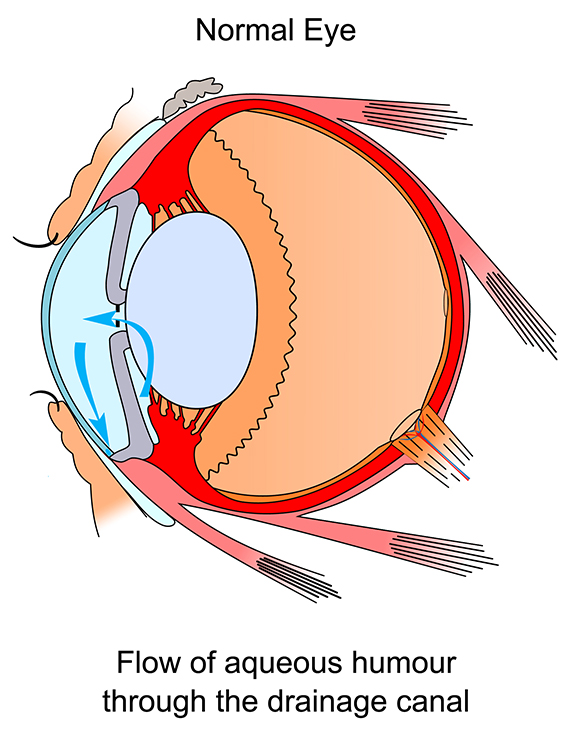
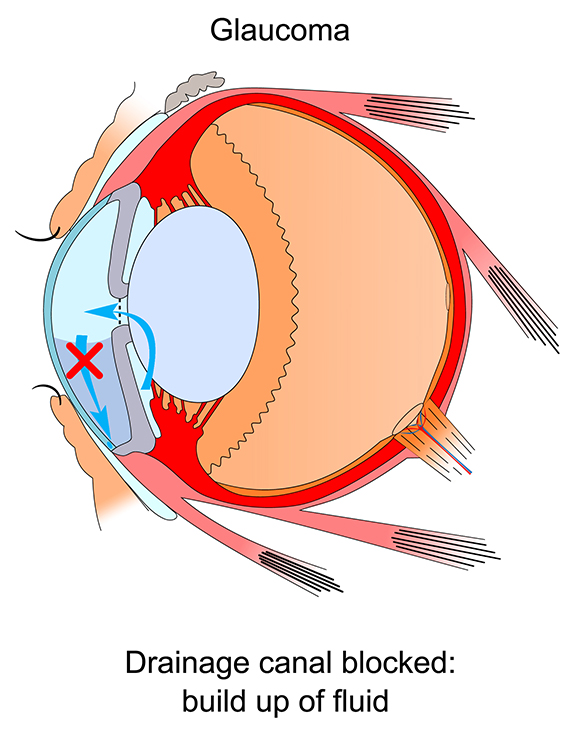
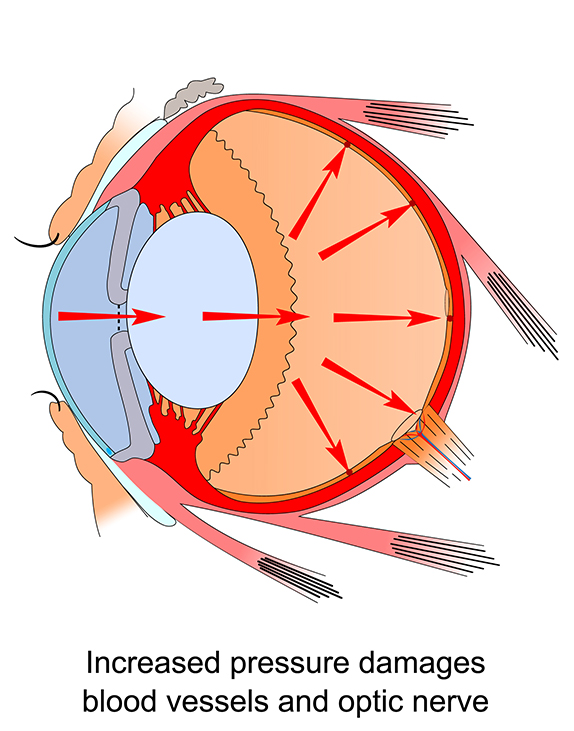
With glaucoma, damage to the optic nerve occurs when intraocular pressure is too high. Increased intraocular pressure often happens when there is a buildup of fluid in the eye. With too much fluid, intraocular pressure goes up and causes optic nerve damage. Once the optic nerve is damaged, vision loss is not reversible. If glaucoma is caught in the early stages, future vision loss is avoidable.
Different Kinds of Glaucoma
Since glaucoma is a group of eye conditions, there are several different kinds. There are two main types: primary open-angle glaucoma and angle-closure glaucoma.
Primary open-angle glaucoma
Primary open-angle glaucoma is the most common kind of glaucoma. This kind of glaucoma forms slowly over time, and starts with no visible symptoms. Primary open-angle glaucoma happens because the eye cannot drain fluids well enough. Over time, the eye becomes less and less able to drain fluids from the eye. This eventually leads to increased intraocular pressure. This then leads to permanent optic nerve damage and vision loss. There is no pain associated with vision loss from primary open-angle glaucoma.
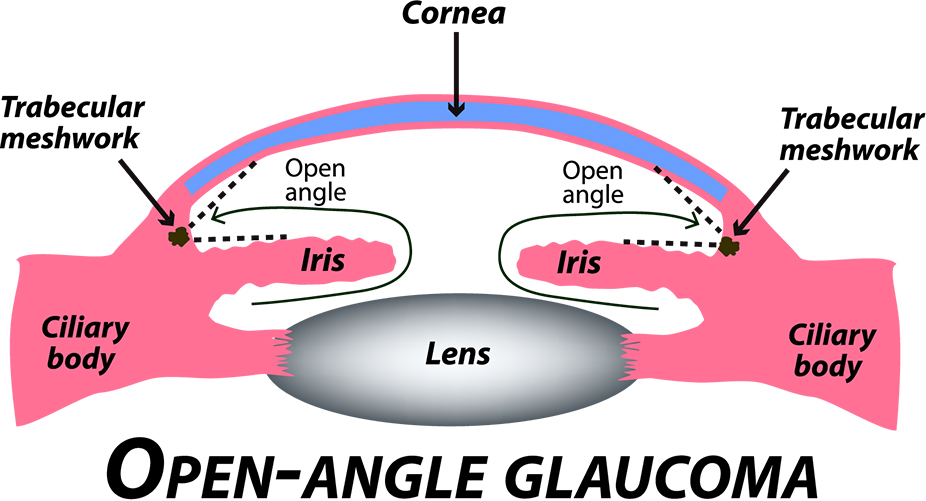
Angle-closure glaucoma
The second most common type of glaucoma is angle-closure glaucoma. Unlike primary open-angle glaucoma, angle-closure glaucoma can come on fast, or slow. When it develops slowly, it is chronic angle-closure glaucoma. For most people with angle-closure glaucoma, it comes on slowly and over time. This type of glaucoma occurs when the iris gets too close to the eye’s drainage angle. When this happens, the iris could end up blocking the drainage angle completely. If the drainage angle is blocked, eye pressure increases quickly. When this occurs, it is known as an acute attack. An acute attack of angle-closure glaucoma is a true eye emergency! If it is not caught and treated, it can lead to blindness.
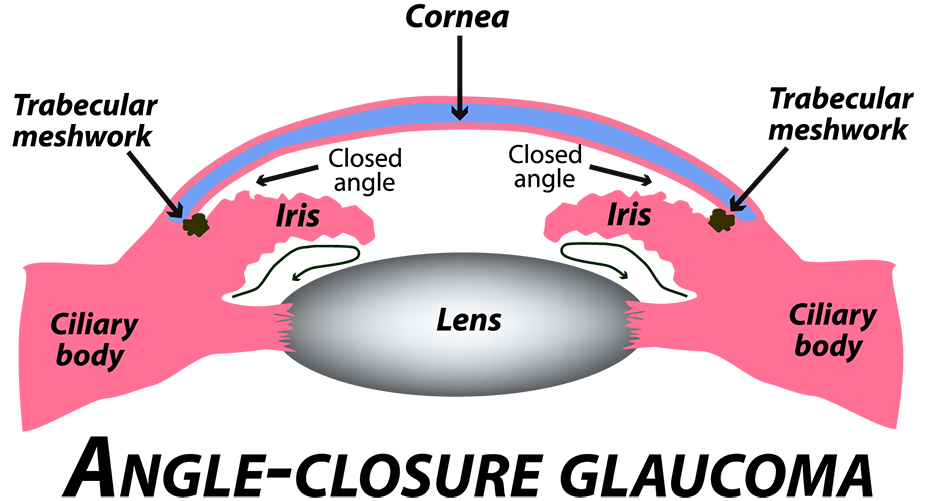
Common symptoms of an acute attack of angle-closure glaucoma include:
- Nausea
- severe eye pain
- blurry vision that comes on suddenly
- Headache
- Vomiting
- seeing halos or rainbow colored rings around lights
For many with chronic angle-closure glaucoma, there are no symptoms. Symptoms only occur during an acute attack, or enough damage affects the optic nerve. If you think you are having an acute attack of glaucoma, immediately call an eye doctor! It could be the difference between vision and blindness.
Symptoms of Glaucoma

With a nickname like the silent thief of sight, it may seem like there are no symptoms of glaucoma, but there are. Part of the difficulty with glaucoma is these symptoms are subtle and easy to ignore. For many patients with glaucoma, a diagnosis comes after vision loss has begun.
With open-angle glaucoma, there are no symptoms, at least in the early stages. For patients with this glaucoma, seeing blind spots peripherally is their first symptom. As open-angle glaucoma progresses, peripheral blind spots and vision loss only get worse. With so few symptoms to watch out for with glaucoma, regular eye exams become even more important! Only an ophthalmologist can diagnose you with glaucoma. Like other medical conditions, the earlier glaucoma is diagnosed, the better. Although there is no cure for glaucoma, intraocular pressure is controllable.
If intraocular pressure stays consistent, further vision loss is avoidable. It’s important to disclose if you have a family history of glaucoma to your eye doctor. Those with a family history of the condition are at a higher risk of developing glaucoma. These patients should have regular eye exams and may need more frequent visits.
Have more questions about glaucoma?
Schedule an appointment with Associates in Ophthalmology in Livingston, New Jersey today!

